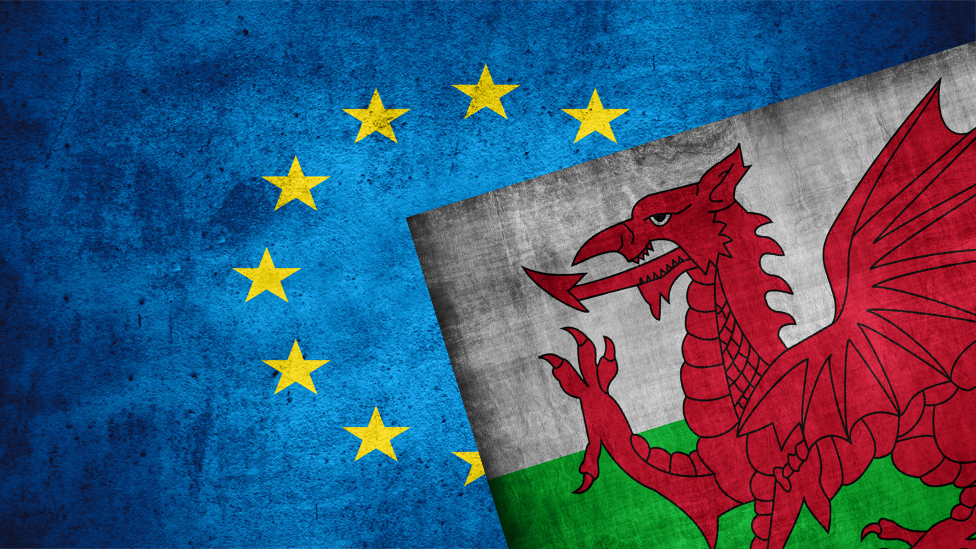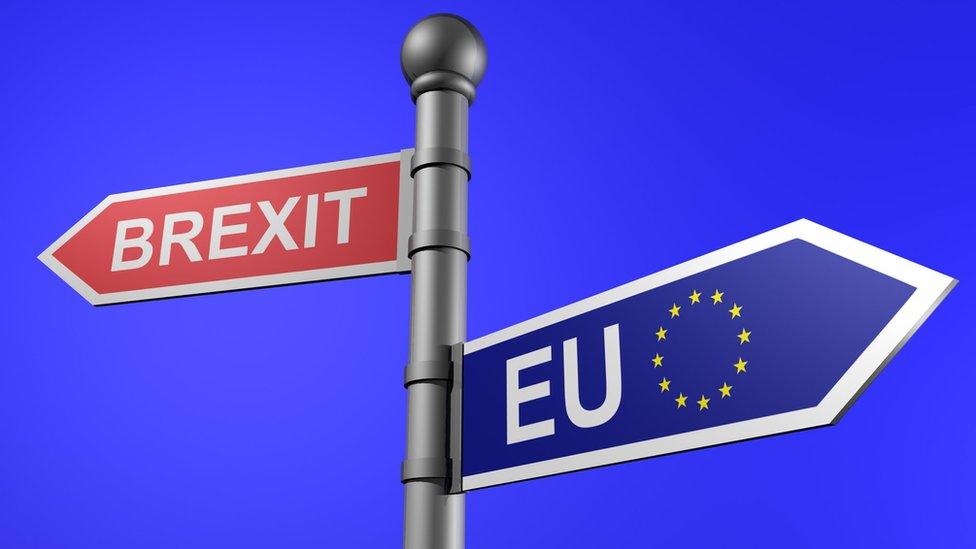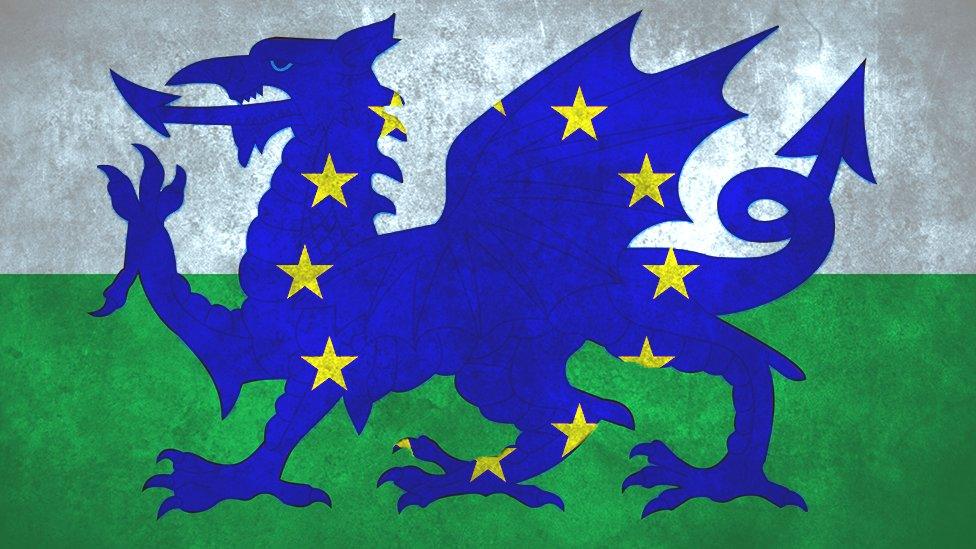'No-one understands what hard or soft Brexit mean'
- Published
- comments
Do you like your Brexit hard or soft?
A prominent Welsh Labour EU supporter has said the public largely do not understand what is meant by the terms "soft" or "hard" Brexit.
Former MEP turned AM Eluned Morgan spoke a year on from the referendum when Wales voted to leave the EU.
Hard and soft Brexit relates to the type of relationship with the EU single market after the UK leaves the bloc.
UKIP MEP Nathan Gill warned against a "con" of a Brexit, saying there were only two options - to leave or to stay.
Meanwhile Welsh Conservative leader Andrew RT Davies has said his family faced "abuse" after he decided to campaign for Leave.
On June 23 2016, 854,572 people in Wales - 52.5% of those who took part in the referendum - voted for Brexit, compared with 772,347 (47.5%) who said the UK should stay.
The figures were in line with the UK result and came despite First Minister Carwyn Jones and the then Prime Minister David Cameron campaigning for a Remain vote.

Former Welsh Secretary David Jones (R) with Leave campaigners celebrating in Flintshire
Asked how parties that campaigned for Remain should learn from the referendum, Ms Morgan said: "We should probably stop talking about the EU in terms that people don't understand.
"Not many people I know understand hard and soft Brexit, and those are the experts.
"If we really want to connect with the people we have to start talking about a jobs Brexit, or a Brexit that means you can still go out to a cafe and be served because actually we [could] lose so many people."
Eluned Morgan said Remainers lacked a "simple" pro-EU message
Soft Brexit is sometimes used to refer to the UK maintaining some kind of relationship with the single market in return for concessions on freedom of movement, while hard or clean Brexit suggests leaving the single market entirely.
There is no agreed definition of either.
But Mr Gill, former UKIP Wales leader, told BBC Wales: "There's only one type of Brexit - you leave or you stay."
He says Britain has to leave the single market and the customs union "otherwise we haven't left - it has to be that way".
"We have to give the public some credit. They understood these things," Mr Gill said.
He suggested that anything else would be a "con".
Nathan Gill talks about his experience on the night of the EU referendum
Andrew RT Davies- another leading Brexit campaigner - told BBC Wales last year he suffered "brutal" treatment from senior Tory party figures after he announced his preference for leaving the EU.
In an interview he said said his family "received quite a bit of abuse around the decision that I took".
- Published29 September 2016
- Published23 June 2017

- Published23 June 2017

- Published23 December 2016
